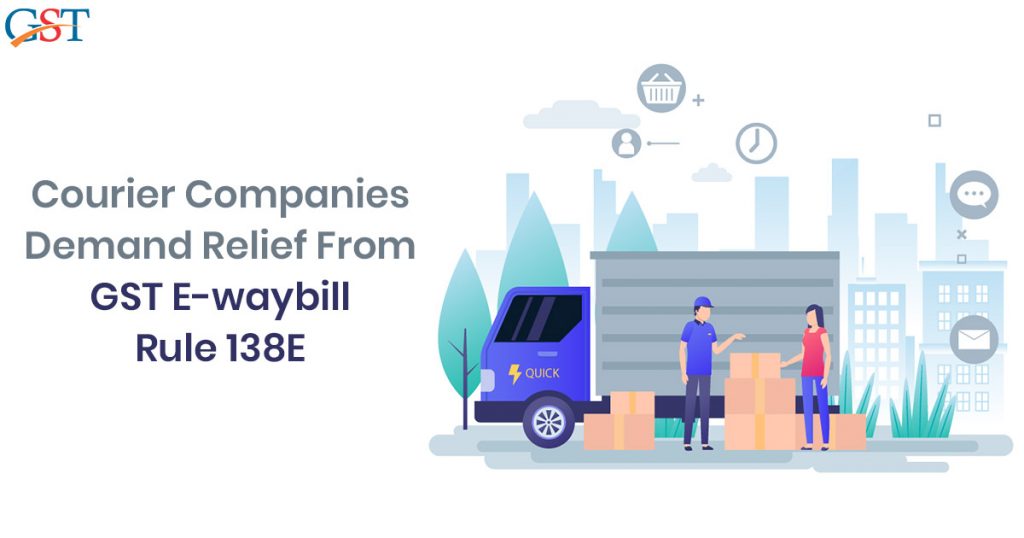
Courier companies are seeking relief from Goods and Services Tax Rule 138E that barricades them from generating the e-way bill. Under the end-to-end logistics model, the courier companies like DHL, FedEx and UPS face extreme pressure due to the Rule 138E as these companies receive the goods passed from customs for those who place the orders.
Now the courier companies who get bound to deliver the imported goods to customers, under the goods and services tax rule that prohibits offenders from issuing e-waybills, are asking for relief on e-way bill rule as e-way bills are mandatory documents for the transport of goods of value more than INR 50,000.
On the other side, the goods once passed from custom can not be stored back with the customs department. This creates disarray for the international as well as local delivery companies like Safe Express, DTDC, Gati and Delhivery and that is why they have appealed the government to find the measure for the same. The government said that the issue is under examination.
The GST Rule 138E 
Import consignments of companies, that have failed to file returns and due to which they can not generate e-waybills, cannot be delivered. However, the goods, once cleared, would not be permitted to be kept inside the customs premises.
“As per customs regulations, goods may not be retained in the customs premises post clearance,” said Vijay Kumar, CEO at the Express Industry Council of India lobby group. “But moving the goods outside the customs premises without e-waybill would result in noncompliance from a GST standpoint.”
The courier companies do not have any tool to check whether their customers are GST compliant.
“The task itself would be monumental given the volume of transactions and number of clients,” Kumar stated. “Tracking such compliances would lead to operational challenges… delay in delivery of goods and a reduction in operational efficiency.”
“While GST was intended to simplify supply chains, logistics businesses have been facing a few challenges such as EWBs on import consignments, which need to be discussed, as this is a key ingredient in improving the ease of doing business,” expressed MS Mani, partner at Deloitte India.
A senior government official informed that the government is looking out for the measure to resolve the issues and said, “States have some reservations on the issue.”
One of the measures to avert the problem was given by the official which asks for a written undertaking from customers which confirms that they’re GST compliant 









